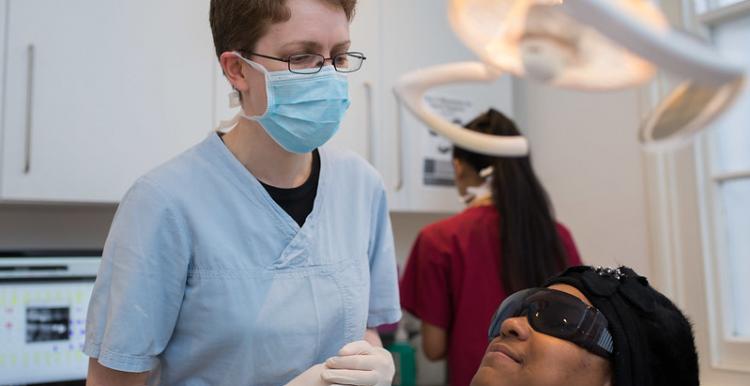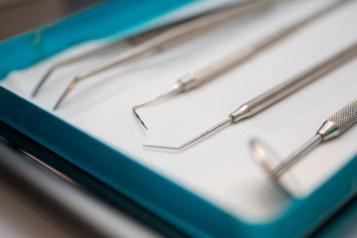How to get an NHS dentist appointment in Milton Keynes

This page was updated on 4 May 2023.
How to get an NHS dentist appointment
A word of caution: it's not easy to find an NHS dentist in Milton Keynes right now. There are 30 dental practices in MK, and around 200,000 residents. There are virtually no NHS dentists taking on patients in our area.
However, your starting point is to use the NHS website to search for a dentist in Milton Keynes. The site also provides information on which dental practices are currently accepting new NHS patients, whether they offer urgent appointments, and how other people have rated the service.
Use the search filters to get the most accurate results for your search. Here's how:
- Select 'add filters'.
- Tick the appropriate filter for your needs.
- It will bring up a list of dental practices closest to you who are taking NHS patients. These can change very quickly so do keep checking! These are dentists who have updated their information within the last 90 days so it is as up to date as it can be.
Please remember that people often tell us these records aren't kept updated, so you should contact the practice directly to find out more information.
If you don’t have access to the internet, you can call us and we can look them up for you.
Registering with a dentist
While dentists may talk about ‘registering’ with them, under NHS rules, you are only a patient of that dentist for the time it takes to complete the particular course of treatment on the plan you have agreed.
So, this means that you don't need to 'register' with a dentist as you do with a doctor. You still have to fill out your medical history but, in theory, you could visit a different dentist every time you needed a check up or treatment, as they are not bound by catchment areas or practice boundaries.
What to do if you have a dental emergency?
If you need immediate care for your teeth, you should:
- Ask your regular dentist whether they can offer an emergency appointment.
- Phone NHS 111 who can locate an urgent dental service.
- Visit A&E if you experience severe pain, heavy bleeding, or injuries to the face, mouth or teeth. If you're not sure whether you should go to A&E, contact NHS 111, who will be able to advise you.
The emergency dentist will only deal with the immediate problem and provide clinically necessary treatment to stop any pain. An urgent dental treatment will always be charged at Band 1 (see charges below). If you're asked to come back for further treatment, this will be considered a separate course of non-urgent treatment. You will have to pay the relevant charge for the new course of treatment. Ask the dentist what the treatment will cost or whether you can have a treatment plan.
What does treatment cost on the NHS?
Dentistry is one of the few NHS services where you have to pay a contribution towards the cost of your care. The information on this page comes from the NHS website and explains what you may have to pay for your NHS dental treatment.
- Urgent dental treatment – £25.80 This covers urgent care in a primary care NHS dental practice such as pain relief or a temporary filling.
- Band 1 course of treatment – £25.80 This covers an examination, diagnosis (including X-rays), advice on how to prevent future problems, a scale and polish if clinically needed, and preventative care such as the application of fluoride varnish or fissure sealant if appropriate.
- Band 2 course of treatment – £70.70 This covers everything listed in Band 1 above, plus any further treatment such as fillings, root canal work or removal of teeth but not more complex items covered by Band 3.
- Band 3 course of treatment – £306.80 This covers everything listed in Bands 1 and 2 above, plus crowns, dentures, bridges and other laboratory work.
For information about help with dental charges, including how to claim a refund, see the NHS section on help with health costs.
Dental practices usually offer both NHS and private dental care. You should check whether you are paying for NHS, private treatment, or both before you begin your treatment. If you claim NHS dental treatment when you are not eligible for it, you could be fined.
Discuss it with your dentist or call NHS England to find out the process and confirm your eligibility.
NHS dentists should always:
- Explain which treatments are available on the NHS.
- Explain which treatments are only available privately.
- Make sure you know how much your NHS treatment and private treatment will cost.
Making a complaint about NHS dentist services
If you're not happy with any aspect of NHS dentist treatment or care in Milton Keynes, you need to make a complaint to NHS England. If you have any problems making a complaint through the NHS, please get in touch and we can try to help.
Looking for more general advice?
You can also check out advice from the Oral Health Foundation.

